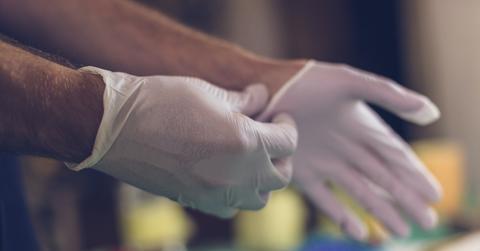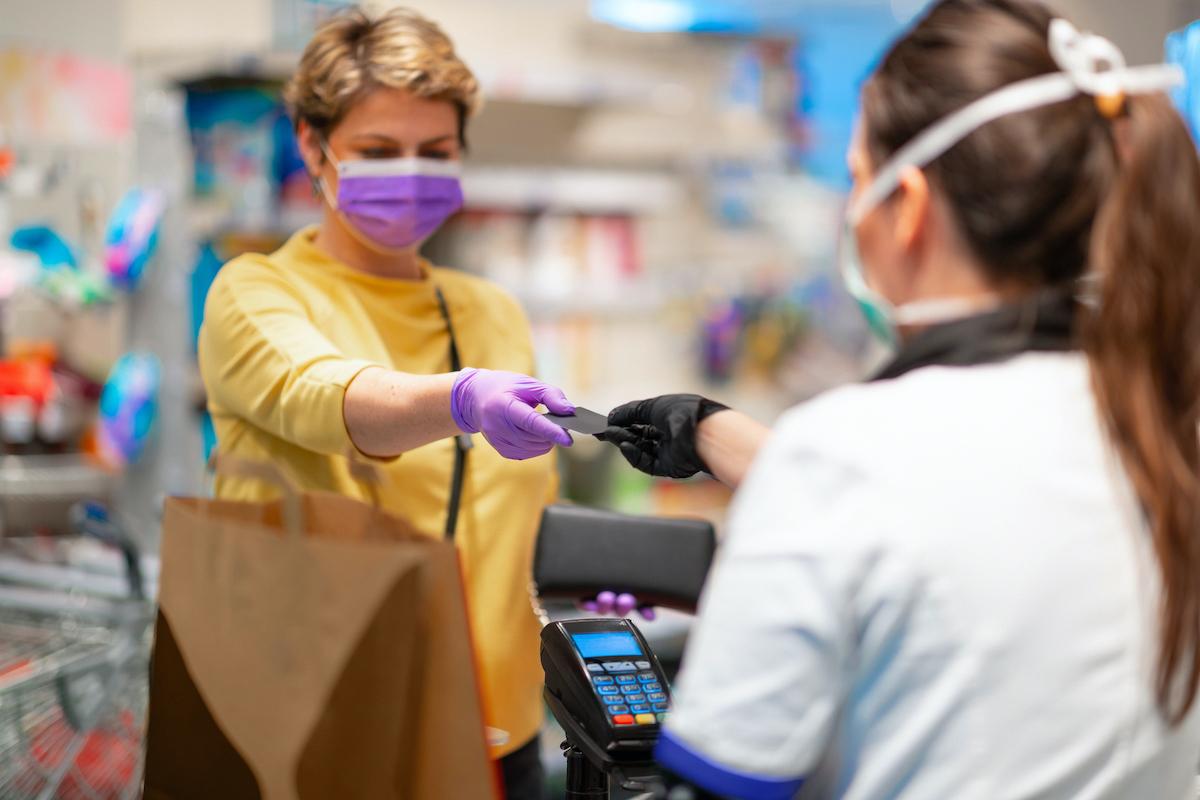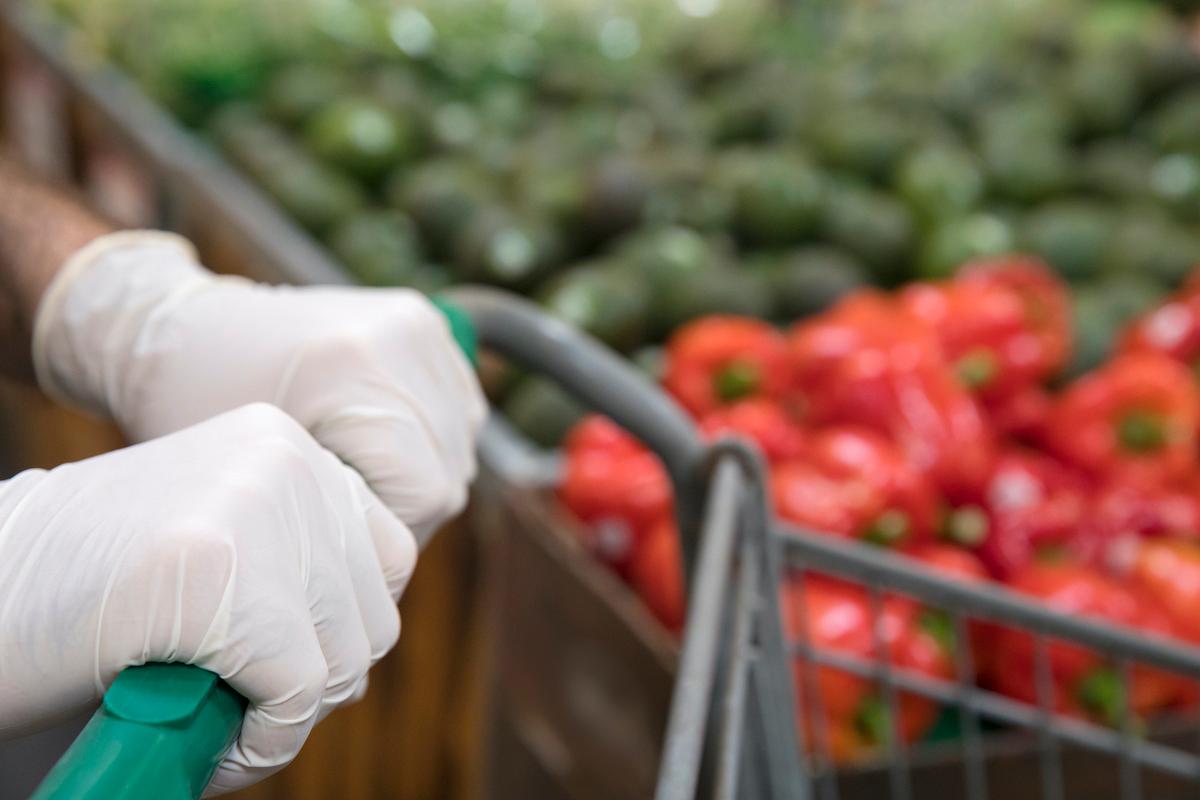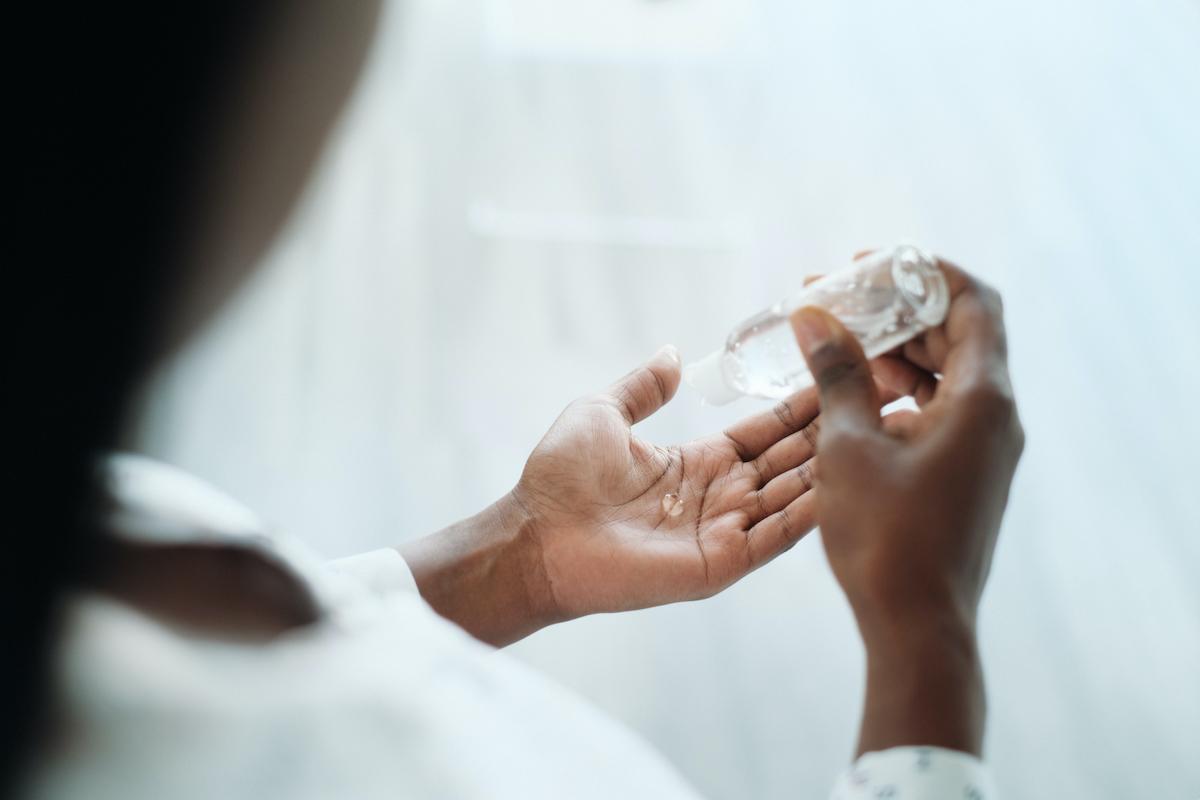Can You Reuse Disposable Gloves? An MD Weighs In on Gloves During the Coronavirus
An MD answers all your questions about gloves and the coronavirus.
Updated April 30 2020, 10:29 a.m. ET

Whether it’s because you’re eco-conscious and want to create less waste, because your stock of single-use gloves is dwindling, or because you’ve heard that disposable gloves should be reserved for frontline workers, you may be wondering: Is it ever safe to clean and reuse latex gloves? And for that matter, should we be wearing disposable gloves at all?
Right now, there’s a lot of uncertainty regarding the best glove practices to protect ourselves — and others — from spreading the novel coronavirus. So if you have any questions regarding proper disposable glove etiquette during the COVID-19 pandemic, read on to learn what experts have to say.
Can you reuse disposable latex gloves?
If you do choose to or need to wear disposable gloves during the coronavirus outbreak for whatever reason, Texas-based general surgeon Dr. Charles W. Page doesn’t recommend ever washing or reusing them.
“These gloves are so thin and so disposable, they almost tear just by putting them on initially,” he tells Green Matters. “So in order to be able to take them off and sterilize them, you pretty much have to take them off backwards with each finger, which is really hard, so you’re more likely to tear the gloves.”
And even if you don’t tear the gloves when taking them off, removing contaminated gloves in a way that would allow you to wear them again could accidentally transfer bacteria from the outside of the gloves to the inside, or to your hands.
Rather than reusing single-use gloves, Dr. Page recommends regularly washing hands for at least 20 seconds, or using hand sanitizer when soap and water isn’t available.
Should we wear gloves to prevent the coronavirus?

According to the World Health Organization (WHO), wearing gloves in public is generally not effective in preventing the coronavirus, as gloves can still spread the virus from surface to surface, as well as from your hands to you, if you accidentally touch your face. “Regularly washing your bare hands offers more protection against catching COVID-19 than wearing rubber gloves,” according to the WHO.
The Centers for Disease Control and Prevention’s (CDC) webpage about running essential errands does not even mention gloves. In terms of hands while out and about, the organization advises disinfecting your shopping cart with wipes, avoiding touching your face, and using hand sanitizer.
According to Dr. Page, regularly washing hands or applying hand sanitizer is equally as effective as wearing gloves and regularly changing them — if not more effective than wearing gloves. Gloves are essential in medical settings, but “for the guy going out to Walmart, it’s probably an overkill,” Dr. Page says.
Why shouldn’t we wear gloves in the grocery store?
Gloves can spread the virus from surface to surface the same way hands can — but unlike hands, gloves cannot be cleaned.
“If you’re going out with gloves, think about it — you’re touching something, and it’s staying on [the gloves],” Dr. Page tells Green Matters. “So every time you touch something, you’re contaminating something. You’d have to change gloves over and over and over again.”
Of course, that’s what is done in health care — because it is necessary in health care. When it comes to tasks like grocery shopping, experts agree that gloves are generally not necessary, and that regularly sanitizing hands is the best practice.
Another reason experts caution against wearing gloves is because it can trick wearers into thinking they are secure.
“[Wearing gloves] could give you a false sense of security so you might let your guard down in other ways, such as social distancing, hand hygiene,” Lucy Wilson, the chair of the department of emergency health services at the University of Maryland Baltimore County, told the Huffington Post. “And there’s a question of whether people who don’t have gloves may actually wash their hands more because they are more conscious of their hands touching surfaces.”
When should we wear gloves during the coronavirus?

The CDC recommends wearing gloves when cleaning your home, especially when caring for coronavirus patients. Again, gloves cannot be cleaned, but hands can — so if you have a limited supply of gloves, you can safety clean your home by regularly washing your hands as you clean.
How often should we change disposable gloves?
For those who do choose or need to wear disposable gloves for work, Dr. Page recommends changing gloves regularly.
“For example, for a stocker at a grocery store, probably the safest thing to do would be to take off the gloves intermittently and put on new gloves, rather than wear the same pair of gloves all day,” he says, noting that wearing the same gloves all day “defeats the purpose.”
It’s also important to wash hands before putting on gloves, and to wash hands after you take them off.
Are there alternatives to disposable gloves?

If touching doorknobs etc. makes you feel unsettled, but you want to avoid wasting single-use plastic gloves every time you leave your building, there are a few less wasteful options.
Dr. Page recommends against relying on reusable winter gloves to protect yourself, as you cannot wash them or change them while you’re on the go. Instead, he says using a tissue or piece of paper towel can be an equally effective barrier when doing things like open doors, as long as you dispose of it right away. But mostly, he recommends carrying around hand sanitizer, and applying it between touching different surfaces.
Additionally, Dr. Page advises taking extra precautions when you enter your home after running an errand — upon getting home, leave your shoes at the door, disinfect your shoes, and change your clothes or take a shower.
All that being said, as long as you are following all the recommended social distancing and hygiene protocols, Dr. Page thinks one of the most important things we can do is try not to let anxieties about contracting or spreading the virus take over.
In fact, Dr. Page has a whole book on the topic — his book A Spoonful of Courage for the Sick and Suffering is about how to experience freedom from worry and stress while sick or suffering (and the book is available as a free Kindle download right now). He tells Green Matters: “90 percent of the things we worry about never happen, and only about 10 percent of those are as bad as we thought they were.”
The best way to prevent contracting or spreading coronavirus is with thorough hand washing and social distancing. If you feel you may be experiencing symptoms of coronavirus, which include persistent cough (usually dry), fever, shortness of breath, and fatigue, please call your doctor before going to get tested. For comprehensive resources and updates, visit the CDC website. If you are experiencing anxiety about the virus, seek out mental health support from your provider or visit NAMI.org.